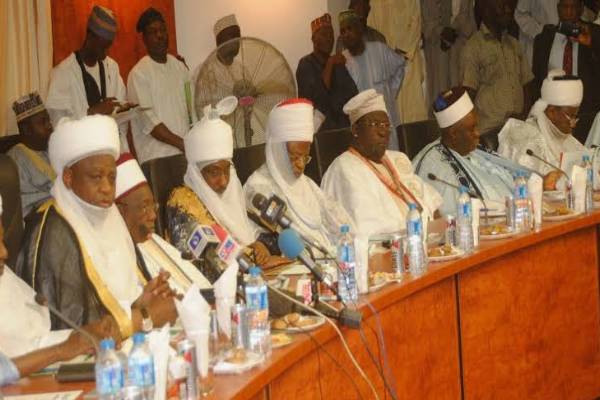From summit to action: The north awaits its governors
As the two days of high-level, extensive discussions on the future of development, investment, and financing in Northern Nigeria come to an end, one question lingers: what next?
Every great idea begins with conversation. Honest dialogue helps people gain clarity, build consensus, and chart a shared vision. But dialogue without action is nothing more than another round of sweet speeches—comforting to the ears, but dangerous if it soothes us into complacency while our region burns. The initiative of the Northern Elders Forum (NEF) would, understandably, attract both scepticism and criticism, given its history of political clashes with the northern political elite. Yet NEF must not be seen as an adversary but as a partner in our collective quest for progress. Ego and vested interests must be abandoned. The North cannot afford a zero-sum game where egos win and the people lose.
For what it’s worth, the Northern Investment and Industrialisation Summit has lit a spark—from the Ladi Kwali conference hall in Abuja to Maiduguri and down to the confluence in Kogi. A sense of direction, passion, and optimism now fills the air. But without the administrative and political weight of the Northern Governors’ Forum, the captains of our collective destiny, this spark may die out. Blueprints do not build bridges; bold leadership does.
The first obstacle to northern development remains insecurity. Banditry, terrorism, and communal clashes continue to bleed the region of its people, its resources, and its future. No investor will put capital in a war zone. You cannot plant prosperity in the soil of fear. To overcome this, governors must treat insecurity not as an isolated state problem but as a collective regional emergency. A Northern Security Compact should be created, modelled after the U.S. Emergency Management Assistance Compact. States could pool resources to set up a Joint Security Task Force with shared intelligence, coordinated patrols, and a regional command structure to respond quickly to crises affecting the region. Each state does not need to buy drones, armoured vehicles, or train counter-insurgency units alone. Pooling resources reduces costs, eliminates duplication, and strengthens capacity. Just as the Amotekun Corps has worked in the South-West, a Northern Security Network funded collectively and backed by regional legislation can deliver results. When insecurity respects no borders, security must be built without borders.
But security alone will not build prosperity. Development requires capital. This is where a Northern Development Bank (NDB) becomes indispensable. The NDB could be jointly owned by the 19 states, with initial capitalisation drawn from a portion of monthly federal allocations. The bank would focus on financing large-scale infrastructure such as irrigation systems, mechanisation, agro-processing plants, industrial parks, and transport infrastructure that individual states struggle to fund alone. To ensure sustainability, the NDB must be professionally run, with private sector participation and strong governance structures. For instance, states can provide seed equity, while international development banks such as Afreximbank, AfDB, or the Islamic Development Bank can be invited to co-invest.
Crucially, the bank should finance based on comparative advantage: Sokoto could build leather clusters, Kano could expand textiles, Borno could invest in solar energy, Plateau could invest in solid minerals, and Benue could invest in agro-processing. By aligning loans with each state’s strengths, the bank would create regional value chains, reduce unemployment, and boost exports. Prosperity grows fastest where states compete in excellence, not in poverty.
The removal of subsidies has poured unprecedented resources into state coffers. The excuse of scarcity has expired. What remains is the courage to act.
Northern development is not just a regional aspiration; it is a national emergency. The summit has given us direction, but it is the governors who must now deliver. They can either rise as visionaries who turned dialogue into development or go down as leaders who looked on while their region burned.
Finally, the North is watching. The nation is watching. And history will not be kind to those who make speeches for solutions.
Nazeer Baba writes from Abuja, Nigeria. [email protected]

